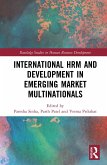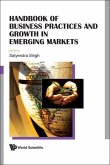All managers face a business environment in which international and macroeconomic phenomena matter. Understanding these phenomena the determinants of capital flows, the effects of foreign capital on host countries, the impact of exchange-rate movements, and the genesis of financial and currency crises is a crucial aspect to making informed managerial decisions. Adverse macroeconomic phenomena can have a catastrophic impact on a firm's performance as demonstrated by the many strong companies destroyed by successive crises in Latin America and Asia and the even recent U.S. mortgage crisis. Yet at the same time, such episodes also create business opportunities and not just for the hedge funds and speculators that profit from them. Managers who possess a coherent framework for analyzing these phenomena will enjoy a competitive advantage. This book presents a series of case studies taught in the Harvard Business School course, Institutions, Macroeconomics, and the Global Economy (IMaGE). The cases focus on key recent events that have shaped the way economists think about these subjects. The cases also cover events that occurred during the last three decades as they hold important lessons for the business environment that managers face today. They have also been designed to provide readers with an appreciation of the critical role of institutions in affecting patterns of international capital flows and the abilities of government to manage them effectively.








